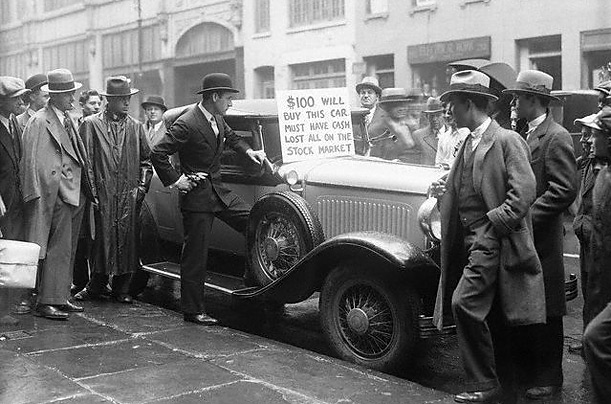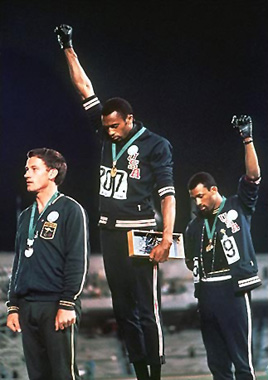The first responsibility of a leader is to define reality. The last is to say thank you. In between the two, the leader must become a servant and a debtor. That sums up the progress of an artful leader.
 Concepts of leadership, ideas about leadership, and leadership practices are the subject of much thought, discussion, writing, teaching, and learning. True leaders are sought after and cultivated. Leadership is not an easy subject to explain. A friend of mine characterizes leaders simply like this: “Leaders don’t inflict pain; they bear pain.”
Concepts of leadership, ideas about leadership, and leadership practices are the subject of much thought, discussion, writing, teaching, and learning. True leaders are sought after and cultivated. Leadership is not an easy subject to explain. A friend of mine characterizes leaders simply like this: “Leaders don’t inflict pain; they bear pain.”
The goal of thinking hard about leadership is not to produce great or charismatic or well-known leaders. The measure of leadership is not the quality of the head, but the tone of the body. The signs of outstanding leadership appear primarily among the followers. Are the followers reaching their potential? Are they learning? Serving? Do they achieve the required results? Do they change with grace? Manage conflict?
I would like to ask you to think about the concept of leadership in a certain way. Try to think about a leader, in the words of the gospel writer Luke, as “one who serves.” Leadership is a concept of owing certain things to the institution. It is a way of thinking about institutional heirs, a way of thinking about stewardship as contrasted with ownership. Robert Greenleaf has written an excellent book about this idea, Servant Leadership.
The art of leadership requires us to think about the leader-as-steward in terms of relationships: of assets and legacy, of momentum and effectiveness, of civility and values.
Leaders should leave behind them assets and a legacy. First, consider assets; certainly leaders owe assets. Leaders owe their institutions vital financial health, and the relationships and reputation that enable continuity of that financial health. Leaders must deliver to their organizations the appropriate services, products, tools, and equipment that people in the organization need in order to be accountable. In many institutions leaders are responsible for providing land and facilities.
But what else do leaders owe? What are artful leaders responsible for? Surely we need to include people. People are the heart and spirit of all that counts. Without people, there is no need for leaders. Leaders can decide to be primarily concerned with leaving assets to their institutional heirs or they can go beyond that and capitalize on the opportunity to leave a legacy, a legacy that takes into account the more difficult, qualitative side of life, one which provides greater meaning, more challenge, and more joy in the lives of those whom leaders enable.
Besides owing assets to their institutions, leaders owe the people in those institutions certain things. Leaders need to be concerned with the institutional value system which, after all, leads to the principles and standards that guide the practices of the people in the institution. Leaders owe a clear statement of the values of the organization. These values should be broadly understood and agreed to and should shape our corporate and individual behavior. What is this value system based on? How is it expressed? How is it audited? These are not easy questions to deal with.
Leaders are also responsible for future leadership. They need to identify, develop, and nurture future leaders.
Leaders are responsible for such things as a sense of quality in the institution, for whether or not the institution is open to influence and open to change. Effective leaders encourage contrary opinions, an important source of vitality. I am talking about how leaders can nurture the roots of an institution, about a sense of continuity, about institutional culture.
Leaders owe a covenant to the corporation or institution, which is, after all, a group of people. Leaders owe the organization a new reference point for what caring, purposeful, committed people can be in the institutional setting. Notice I did not say what people can do — what we can do is merely a consequence of what we can be. Corporations, like the people who compose them, are always in a state of becoming. Covenants bind people together and enable them to meet their corporate needs by meeting the needs of one another. We must do this in a way that is consonant with the world around us.
Leaders owe a certain maturity. Maturity as expressed in a sense of self-worth, a sense of belonging, a sense of expectancy, a sense of responsibility, a sense of accountability, and a sense of equality.
Leaders owe the corporation rationality. Rationality gives reason and mutual understanding to programs and to relationships. It gives visible order. Excellence and commitment and competence are available to us only under the rubric of rationality. A rational environment values trust and human dignity and provides the opportunity for personal development and self-fulfillment in the attainment of the organization’s goals.
Business literacy, understanding the economic basis of a corporation, is essential. Only a group of people who share a body of knowledge and continually learn together can stay vital and viable.
Leaders owe people space, space in the sense of freedom. Freedom in the sense of enabling our gifts to be exercised. We need to give each other the space to grow, to be ourselves, to exercise our diversity. We need to give each other space so that we may both give and receive such beautiful things as ideas, openness, dignity, joy, healing, and inclusion. And in giving each other the gift of space, we need also to offer the gifts of grace and beauty to which each of us is entitled.
Another way to think about what leaders owe is to ask this question: What is it without which this institution would not be what it is?
Leaders are obligated to provide and maintain momentum. Leadership comes with a lot of debts to the future. There are more immediate obligations as well. Momentum is one. Momentum in a vital company is palpable. It is not abstract or mysterious. It is the feeling among a group of people that their lives and work are intertwined and moving toward a recognizable and legitimate goal. It begins with competent leadership and a management team strongly dedicated to aggressive managerial development and opportunities. This team’s job is to provide an environment that allows momentum to gather.
Momentum comes from a clear vision of what the corporation ought to be, from a well-thought-out strategy to achieve that vision, and from carefully conceived and communicated directions and plans that enable everyone to participate and be publicly accountable in achieving those plans.
Momentum depends on a pertinent but flexible research and development program led by people with outstanding gifts and unique talents. Momentum results when a corporation has an aggressive, professional, inspired group of people in its marketing and sales units. Momentum results when the operations group serves its customers in such a way that the customer sees them as their best supplier of tools, equipment, and services. Underlying these complex activities is the e
ssential role of the financial team. They provide the financial guidelines and the necessary ratios. They are responsible for equity among the various groups that compose the corporate family.
Leaders are responsible for effectiveness. Much has been written about effectiveness — some of the best of it by Peter Drucker. He has such a great ability to simplify concepts. One of the things he tells us is that efficiency is doing the thing right, but effectiveness is doing the right thing.
Leaders can delegate efficiency, but they must deal personally with effectiveness. Of course, the natural question is ?how.? We could fill many pages dealing with how to be effective, but I would like to touch on just two ways.
The first is the understanding that effectiveness comes about through enabling others to reach their potential — both their personal potential and their corporate or institutional potential.
In some South Pacific cultures, a speaker holds a conch shell as a symbol of a temporary position of authority. Leaders must understand who holds the conch ? that is, who should be listened to and when. This makes it possible for people to use their gifts to the fullest for the benefit of everyone.
Sometimes, to be sure, a leader must choose who is to speak. That is part of the risk of leadership. A leader must assess capability. A leader must be a judge of people. For leaders choose a person, not a position.
Another way to improve effectiveness is to encourage roving leadership. Roving leadership arises and expresses itself at varying times and in varying situations, according to the dictates of those situations. Roving leaders have the special gifts or the special strengths or the special temperament to lead in these special situations. They are acknowledged by others who are ready to follow them.
Leaders must take a role in developing, expressing, and defending civility and values. In a civilized institution or corporation, we see good manners, respect for persons, an understanding of “good goods,” and an appreciation of the way in which we serve each other.
Civility has to do with identifying values as opposed to following fashions. Civility might be defined as an ability to distinguish between what is actually healthy and what merely appears to be living. A leader can tell the difference between living edges and dying ones.
- To lose sight of the beauty of ideas and of hope and opportunity, and to frustrate the right to be needed, is to be at the dying edge.
- To be a part of a throwaway mentality that discards goods and ideas, that discards principles and law, that discards persons and families, is to be at the dying edge.
- To be at the leading edge of consumption, affluence, and instant gratification is to be at the dying edge.
- To ignore the dignity of work and the elegance of simplicity, and the essential responsibility of serving each other, is to be at the dying edge.
Justice Oliver Wendell Holmes is reported to have said this about simplicity: “I would not give a fig for the simplicity this side of complexity, but I would give my life for the simplicity on the other side of complexity.” To be at the living edge is to search out the “simplicity on the other side of complexity.”
In a day when so much energy seems to be spent on maintenance and manuals, on bureaucracy and meaningless quantification, to be a leader is to enjoy the special privileges of complexity, of ambiguity, of diversity. But to be a leader means, especially, having the opportunity to make a meaningful difference in the lives of those who permit leaders to lead.
From Leadership Is an Art, A Currency Book published by Doubleday, a division of Random House. ISBN 13: 978-0385512466
We have grown up with the experience of our parents and grandparents that people can and must plan, develop, and shape their own lives, and that life has a purpose, about which people must make up their minds, and which they must then pursue with all their strength.




